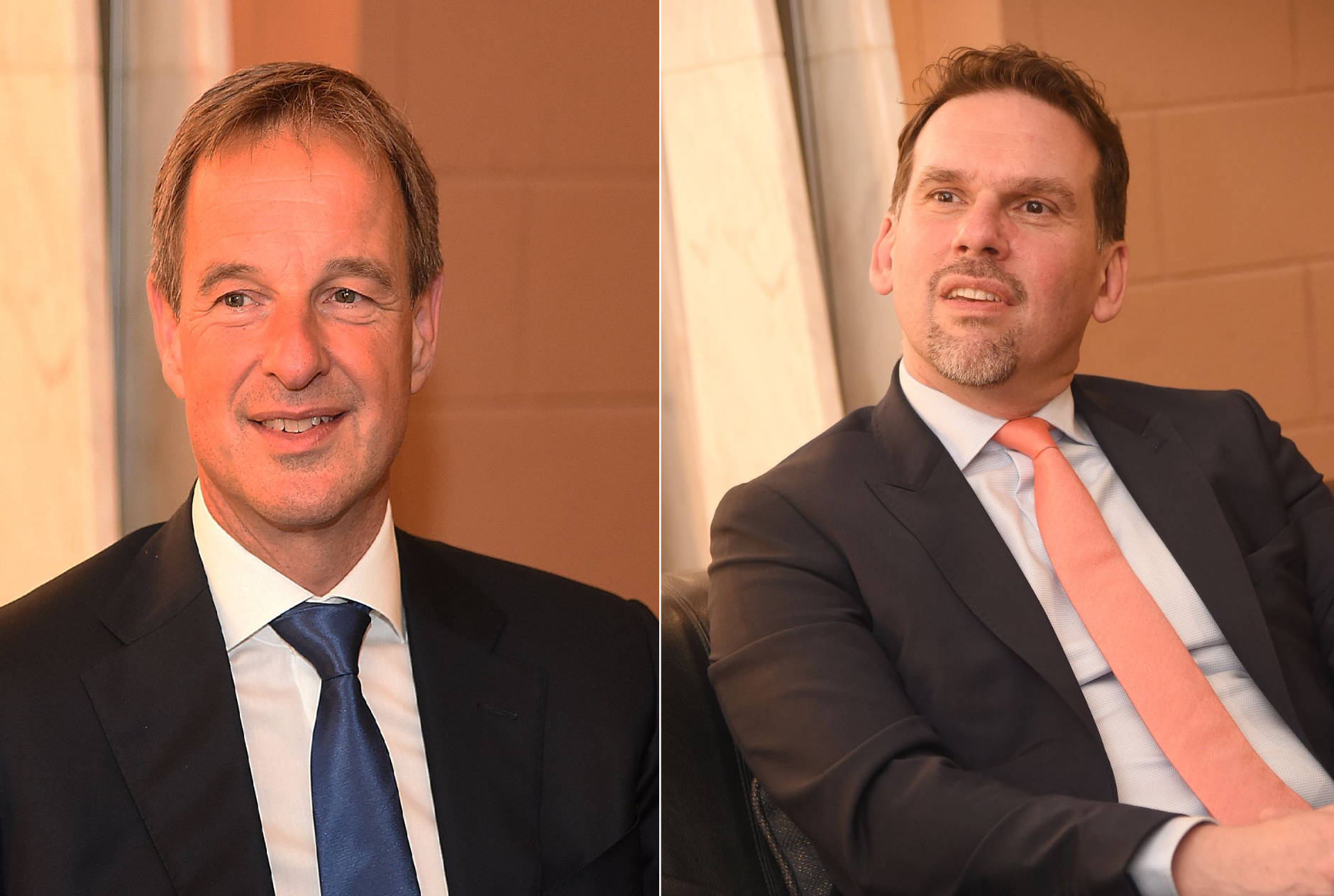 Stefan Gumuseli (R) , General Manager for Air France–KLM India and Middle East, and Bas Gerressen, SVP Benelux, Dutch Caribbean & Suriname
Stefan Gumuseli (R) , General Manager for Air France–KLM India and Middle East, and Bas Gerressen, SVP Benelux, Dutch Caribbean & Suriname
Air France: Saudi Arabia Is Fast Becoming One of Our Most Strategic Markets
In conversation with Al Riyadh newspaper, Air France executives Stefan Gumuseli and Bas Gerressen discuss the airline’s latest expansion into the Kingdom, the growing potential of Saudi tourism, and why Medina could be next.
With Saudi Arabia emerging as one of the most dynamic aviation markets globally, international carriers are taking note. For Air France–KLM, the Kingdom has become a central pillar of its regional strategy. Following the launch of direct flights between Riyadh and Paris Charles de Gaulle Airport, Al Riyadh sat down with Stefan Gumuseli, General Manager for Air France–KLM India and Middle East, and Bas Gerressen, SVP Benelux, Dutch Caribbean & Suriname, to discuss the airline’s goals, the competitive landscape, and its long-term vision for the Saudi market.
Why did Air France select Riyadh for its newest direct route to Paris? What makes the Saudi market so important to your network?
Stefan Gumuseli:
Saudi Arabia is undergoing an extraordinary transformation. Vision 2030 is driving demand across tourism, business, and cultural exchange, which is reshaping travel across the region. Paris is already the second most visited international destination from Riyadh, and we’re seeing broad-based demand that extends well beyond point-to-point travel.
Bas Gerressen:
The Kingdom’s rapid economic growth and expanding tourism infrastructure make it an ideal market for long-term investment. We didn’t choose Riyadh at random. It’s a strategic connection between two capital cities that are growing in global importance.
How would you describe the competition in the Saudi aviation market? What makes Air France stand out?
Bas Gerressen:
The regional aviation scene is highly competitive, with several strong hubs and carriers. But Air France stands out because of our heritage and the quality of experience we deliver. From the moment passengers step on board, they experience French elegance—through the service, the meals, and the consistency of our crew.
Stefan Gumuseli:
Our Airbus A350 plays a major role in that. It’s quiet, modern, and equipped with an outstanding cabin experience. Across all classes, we’ve paid attention to the details, from cabin design to onboard dining. It’s not just about getting from A to B. It’s about how you feel during the journey.
Are there plans to expand Air France’s services beyond Riyadh?
Bas Gerressen:
For now, Riyadh is the priority. We’ve already moved from three to five flights per week and plan to go daily soon. But we’re also studying other markets. Medina is especially interesting. It’s a deeply significant destination with strong appeal for long-stay religious travelers. Transavia, our low-cost subsidiary, is starting seasonal flights to Medina this winter, and we’re watching the response closely.
Stefan Gumuseli:
We see real momentum beyond the major cities. Destinations like AlUla and the Red Sea region are opening up new travel segments. France has been closely involved in the development of AlUla, and we’re excited about what’s to come on both sides—Saudis traveling to France and Europeans discovering the Kingdom.
How have new visa rules in Saudi Arabia influenced your approach?
Stefan Gumuseli:
The introduction of the eVisa and the ability to combine tourism with Umrah has changed the game. Travelers can now apply online in minutes, receive a one-year visa, and plan multi-purpose trips. That creates a new type of traveler—one who combines spiritual journeys with cultural or leisure visits. It’s a market we’re ready to serve.
Bas Gerressen:
We’re also working with Saudia and other partners to explore how we can support this growing segment. Demand for Umrah is rising across Europe, and the new flexibility is unlocking new traffic flows.
Low-cost carriers are growing across the region. How is Air France responding to this trend?
Bas Gerressen:
We don’t compete on the lowest fare. We compete on consistent quality. Our passengers value reliability, comfort, and seamless connectivity. But we also serve price-sensitive travelers through Transavia, which flies from Jeddah and now Medina to France. So we address all market segments while upholding the high standards of the Air France–KLM Group.
Stefan Gumuseli:
It’s really about giving people choices. Whether you’re flying in Business Class to Paris or on a weekend getaway with Transavia, the experience is safe, reliable, and thoughtfully delivered.
Looking ahead, what are your expectations for the Saudi market?
Stefan Gumuseli:
We’re confident about long-term growth. Saudi travelers are becoming more global in their outlook, and Riyadh is attracting increasing business traffic. This is just the beginning.
Bas Gerressen:
And from the other direction, more Europeans are discovering Saudi Arabia. From AlUla to Medina to the Red Sea, there’s growing awareness and curiosity. As infrastructure improves and access gets easier, inbound tourism will accelerate—and we want to help make that possible.








